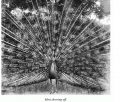Sri Lanka: No Alibis For Ethnic Minority Leaders

By Malladi Rama Rao
For Sri Lanka observers comfortably perched in Delhi, the Tamil National Alliance (TNA) is LTTE by another name. Its leaders barring a couple of exceptions have contributed to furthering this image by their antics. So, TNA’s longevity always carried a question mark in the discussions over endless cups of tea. Now after the parliamentary elections, TNA has become a political gobbledygook. It has put up an impressive show going by the laboured analysis of the results by commentators like DBS Jeyaraj. The party has won thirteen of the 31 seats at stake in the Northern and Eastern Provinces.
Does the vote give the TNA the claim of being Tamil voice? Yes and no.
The electorate appears to have appreciated the TNA’s efforts to stand up and be counted for the first time as a true political entity in its third electoral battle. TNA made it electoral debut in Dec 2001 when it had won 15 seats in Parliament. Three years later in 2004, its tally went up to an impressive 20 elected seats. Both the elections saw the Tigers propping up the TNA as their visible overland political force and the outcome was dictated as much by the fear factor as by the awe they had inspired. So much so, the latest electoral verdict is a reward to the ability of the TNA cadres and leaders to work at the grass roots and win the confidence and trust of the people.
In a democracy, even in a fractured democratic polity like that in Sri Lanka, leadership cannot take the voters for granted. The longevity of the TNA, therefore, depends on its ability to sustain itself and appear as a party with a difference. On both these counts, the odds don’t appear to be in its favour.
EPDP, TMVP and other established Tamil players will not like to give up easily. They will put up a stiff fight. So will be the others, even if they are lateral entrants to politics. More over, whatever the TNA says and does will get automatically juxtaposed with the erstwhile LTTE planks. The exercise will bring back hauntingly the spectre of Tamil extremism.
The best course for the TNA is to adopt the ‘middle path’. It must resist the temptation, even if prompted by circumstances, to pick up the much abused ethnic rhetoric. At the same time, it should shun the pro-establishment tag. Yes, this is not a course for the faint hearted or the one with unadulterated longing for gratification. Playing the blame-game or the game of one-upmanship will be neither here nor there since the Tamils are craving for a strong moderate voice.
Between TNA and the old political war horse, Sri Lanka Muslim Congress (SLMC), there are mutuality of interests and identities. These two entities closing ranks and working for the Tamil good depends very much on the personal equations amongst the leadership. Both parties can gain if the leaders can set aside their personal agendas and resolve to work for people’s causes without losing their separate brand value and appeal.
R. Sampanthan has broken the ice. Rauff Hakeem has reciprocated the gesture. How the two will make the march towards the next step will be interesting to watch and analyse.
At present Hakeem’s party is with the opposition UNP. There is a talk that the ruling party, UNFA is wooing SLMC to award itself with a two-thirds majority in Parliament. The Colombo gossip may be true. It may be untrue like all gossip. But it makes no difference to the long term plank of SLMC and TNA. Both want to emerge as the authentic moderate voice of ethnic minorities and see advantages in number crunching.
Their immediate objective is, however, getting the government moving on empowering the provincial councils and the local bodies as the instruments of governance at the cutting edge. That goal post looks very distant at the moment despite the talk that President Rajapaksa would like to present a new constitution before the year is out. Political will, and not numbers on the floor of Parliament, matter much and the demand-supply gap is unlikely to be bridged in the short to medium term.
With the third mandate in a row (the first was Wanni victory) Mahinda Rajapaksa is in no need to hurry. He can leisurely plan his moves on the political chess board. His priority focus is economy. He has to push ahead with a harsh regime of belt tightening for anywhere between 24 months and 36 months. As events in Pakistan and India show, people these days are in no mood to put up with economic hardship and the governments are increasingly wary of opposition jumping into the fray. Therefore, the vacuum in opposition space in Colombo suits Team Rajapaksa.
Conventional wisdom tells that President Rajapaksa’s second term will see him turn autocratic what with the challenge posed by economic downswing. Many commentators in Delhi, Chennai and Colombo appear to share such a perspective as the past couple of years have seen a dynasty rule of sorts in Sri Lanka. But these critics are missing the woods for the trees.
It is my impression that Rajapaksa is not the one who cannot see beyond the immediate. He knows as a student of history there is no permanence in politics. Performance matters for a place in the hearts of the people and in history. Guns and parliamentary strength matter little when chips are down. He is no longer in the quest for political survival what with no challenger on the horizon either on the Sinhala front or ethnic minority arena. It is this opposition vacuum, as much in the South as in the volatile North, makes him complacent and push the political issues to the back burner.
Now the question is: how to make the President grapple with the political issues? There are no short answers. Domestic pressure is a time tested steroid.
It is for the ethnic minority leaders to put their act together. They will have to move with patience and understanding. Enlisting Southern support will be in their interest though it is not an easy task.
Looking to India and expecting it to do their homework may be an easy way out but it will not endear them to their constituents. Blaming President Rajapaksa and his ‘low priorities’ is no use.
This is a challenge to the TNA, SLMC and other minority leaders. They have to work hard to gain credibility in the eyes of the North and the South. Are they ready and willing? Blame game is no fun. So is the eternal search for alibis.
-
Book Shelf
-
 Book Review
DESTINY OF A DYSFUNCTIONAL NUCLEAR STATE
Book Review
DESTINY OF A DYSFUNCTIONAL NUCLEAR STATE
- Book ReviewChina FO Presser Where is the fountainhead of jihad?
- Book ReviewNews Pak Syndrome bedevils Indo-Bangla ties
- Book Review Understanding Vedic Equality….: Book Review
- Book Review Buddhism Made Easy: Book Review
- Book ReviewNews Elegant Summary Of Krishnamurti’s teachings
- Book Review Review: Perspectives: The Timeless Way of Wisdom
- Book ReviewNews Rituals too a world of Rhythm
- Book Review Marx After Marxism
- Book Review John Updike’s Terrorist – a review
-
-
Recent Top Post
-
 CommentariesTop Story
India’s Migration Dilemma
CommentariesTop Story
India’s Migration Dilemma
-
 Commentaries
Crowd Management Blues
Commentaries
Crowd Management Blues
-
 Meher Baba SpeaksNews
Meher Baba Loved Them Too…
Meher Baba SpeaksNews
Meher Baba Loved Them Too…
- Commentaries Record Pentagon spending bill and America’s hidden nuclear rearmament
-
 CommentariesNews
Ides of trade between India and Pakistan
CommentariesNews
Ides of trade between India and Pakistan
-
 Commentaries
How sustainable is the rhetoric of India-China Bhai-Bhai
Commentaries
How sustainable is the rhetoric of India-China Bhai-Bhai
-
 CommentariesTop Story
New Set of Diplomatic Strains with Canada
CommentariesTop Story
New Set of Diplomatic Strains with Canada
-
 News
Ratan Tata’s Legacy
News
Ratan Tata’s Legacy
-
 Commentaries
India’s Strategic Push on the World Stage
Commentaries
India’s Strategic Push on the World Stage
- Commentaries Veils of Resistance
-
AdSense code















